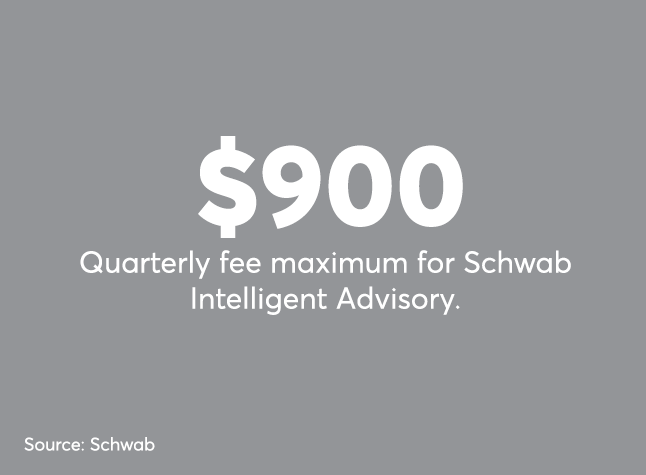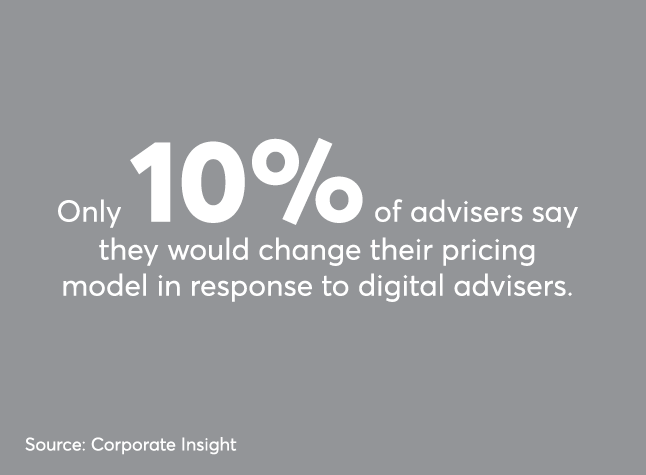
Serious competition
With deeper and wider adoption, pricing and advice for mass affluent will be reset and potentially pressured as the biggest hybrid offerings and big banks clash for that same client.
Further refinement will also come to the robo model as the idea that it’s a device to capture only young investors gives way to broader application and even further client segmentation.
As new digital tools and features incorporating advice elements enter the market more broadly, innovation will continue to pick away at the value offered by advisers.
The pace of development in the digital advice world far exceeds the number of investors actually using robo advisers right now. But the trend is growing.

Pressure on pricing

An insurmountable lead?

A warning about hybrids

How advisers are using robos

More choice and sophistication

Watch the banks

Segmentation strategy

Innovation erosion






